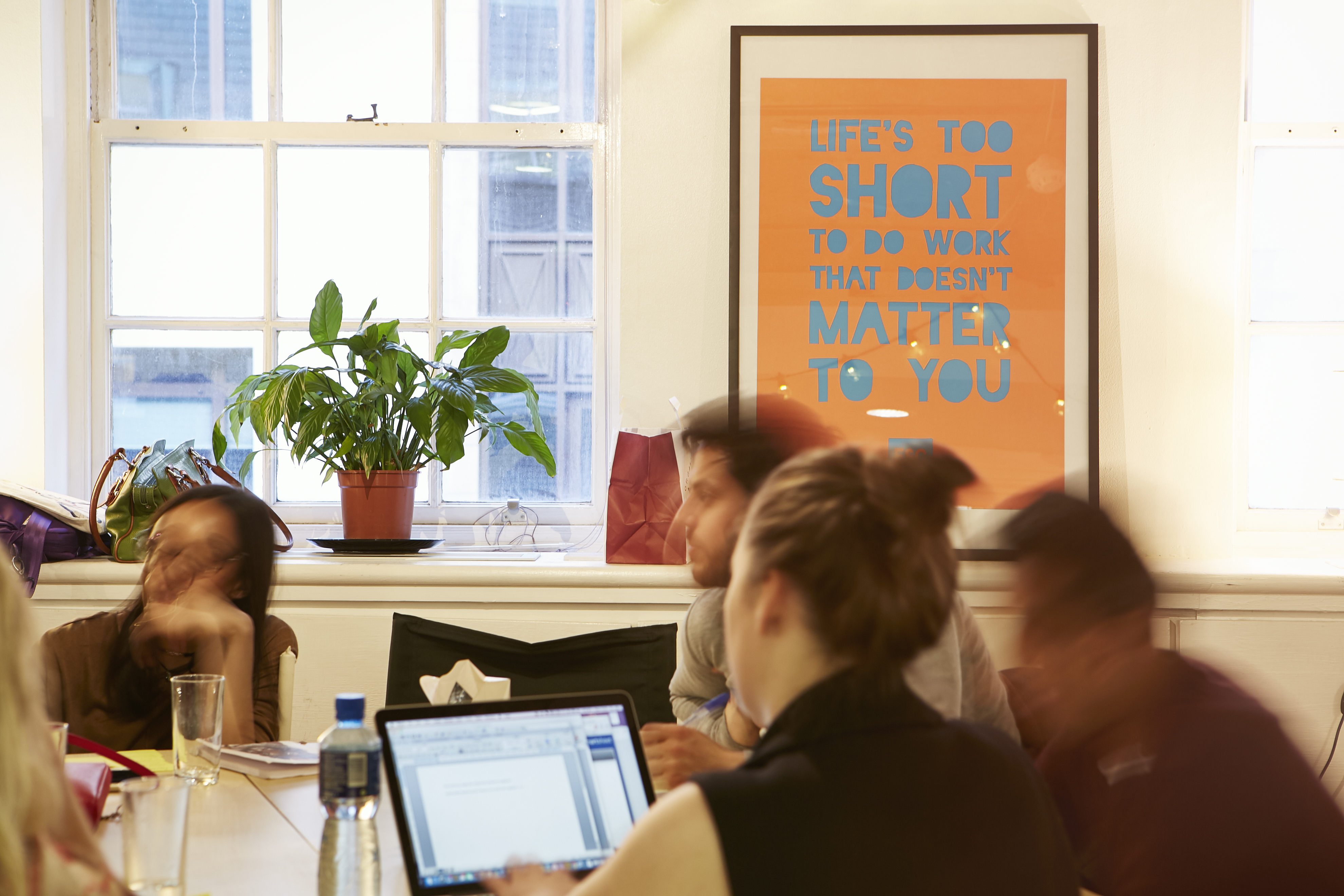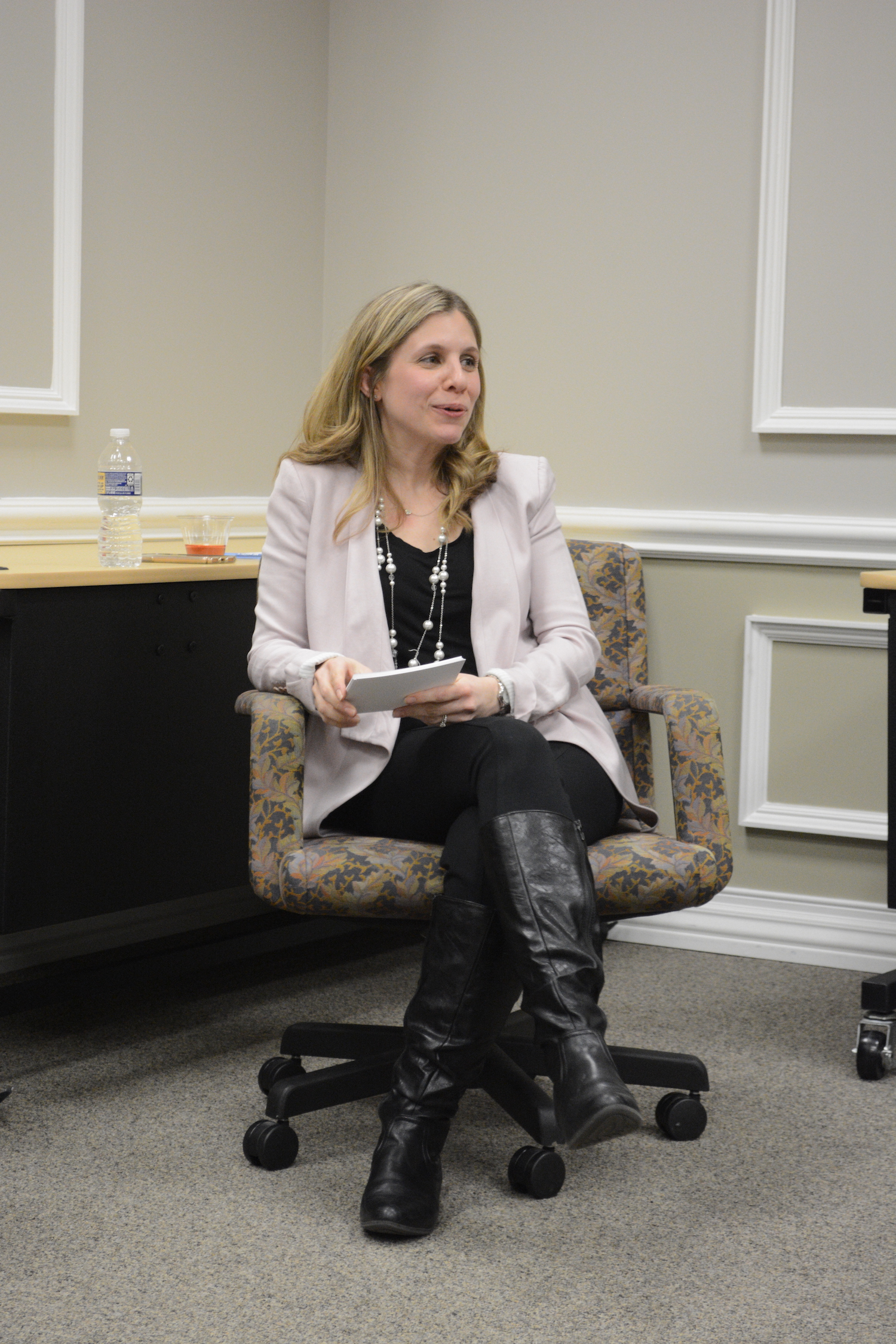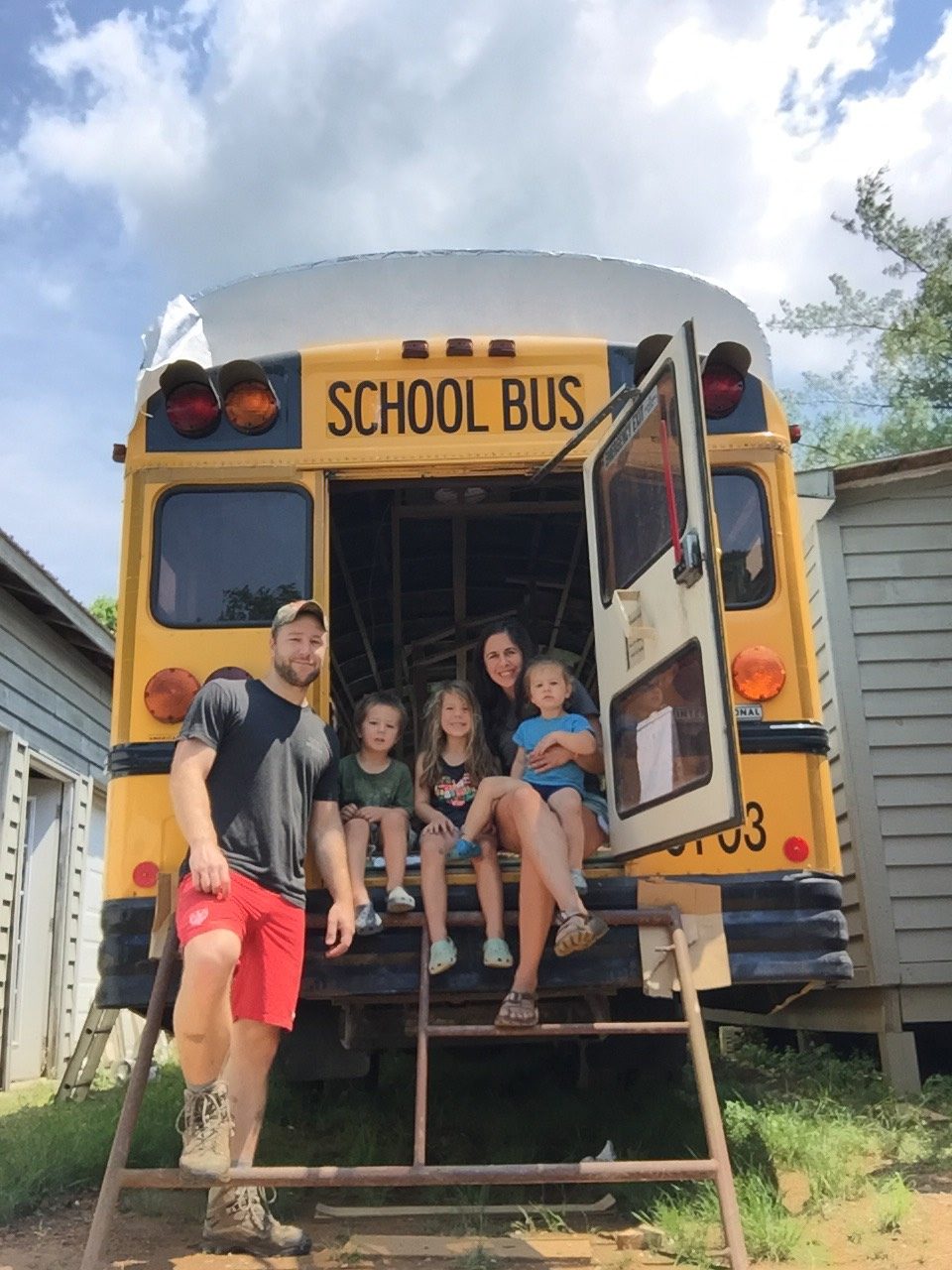- Introduction
- Trust your unhappiness
- Find a community
- You don't need a passion
- Save money and downsize
- Reframe risk
- Do the inner work
Stories of people who get serious burnout and leave soul-sucking corporate careers and make a radical change — getting rid of all of their stuff, leaving city life for an ashram, quitting journalism to scoop ice cream on a Caribbean island — are everywhere.
It’s not surprising, given how many Americans seem to be miserable in their jobs. Only 33 percent of those surveyed for Gallup’s State of the American Workplace poll reported being engaged at work. Sixty-two percent of Americans told CareerCast that their jobs are highly stressful, and 61 percent reported in a Monster survey they had health problems as a result of job stress, with 7 percent saying they had been hospitalized as a result.
“There are so many people who are disillusioned about the organizations they work for or their careers, just don’t feel like they are fulfilling their potential, or they lack purpose and they feel like they’re just cogs in machines,” says Skye Robertson, who heads The Escape School, based in London, which offers courses to help people make career changes.

Yet, many people feel stuck. They may be unhappy, but they are achieving what they were supposed to — advancing in a career in business, law, or academia, for instance — and are at a loss for what else to do.
And well-intentioned platitudes, like “following your bliss” and “live your best life,” do little to assuage the very legitimate doubts people have about change — small things like paying the rent or a mortgage, supporting a family, affording healthcare, and saving for retirement.
To get more honest and realistic advice, I asked people who’ve actually made career changes and other big life changes — leaving successful careers in finance and fashion, becoming a tea sommelier or a food truck owner, or turning a school bus into a family home — how they would advise others to find a career and a life that is truer to themselves. Here are a few steps gleaned from their stories that anyone — even the most “normal” among us — can follow.
Trust your unhappiness, then figure out why you’re unhappy
One of the most common blocks people face is simply acknowledging they’re unhappy or burned out and identifying why, says Jayson DeMers, Founder and CEO of AudienceBloom in an article for Inc.: Because people “can’t pinpoint the reason…they think it’s illogical to feel unhappy or think there’s no way to get rid of those negative feelings,” he says. “Once you understand why you’re unhappy, you can start taking meaningful action to improve your circumstances.”
Tiffany Dyba did not understand why she was crying on her nightly walk home from work. She led the recruitment team at Burberry and had recently been promoted after years of hard work in New York City’s competitive fashion industry. But something was not right. She sought the help of a career coach, and through that work, began to realize that fashion was no longer for her.
“It wasn’t who I am, but it was who I thought I needed to be,” says Dyba.
I craved people pleasing and I craved having the impressive résumé. But I realized I was meant to do something more impactful than singing the praises of 1,800 trench coats.
Through her work with the coach, she realized she wanted to help other mid-career women going through the same thing she was. Last September Dyba left Burberry to begin her coaching business full-time.
In March of this year, she was diagnosed with breast cancer, an experience that has made her even more grateful for her recent change. “There’s no way I would have been able to soldier through if I was working for a company where I felt like I was always valuing other people’s feelings, priorities, or projects,” she says. “Starting my own business helped me realize that I’m the priority.”

Find a like-minded community
In individualistic societies like the United States, stories of change tend to focus on the triumphs of one person, which glosses over the influence of those with whom we surround ourselves. At a time when psychology was focusing on people’s inner motivations, Kurt Lewin, considered the “father of social psychology,” put forth a theory in the 1940s that individual behavior could not be understood without understanding a person’s social environment.
In this view, change is hard, writes NYU social psychologist John Jost:
We value the groups to which we belong, and therefore changing our attitudes or behavior is tantamount to leaving the comfortable embrace of a social reality of which we are a part — a social reality that is largely shared by friends and family members.
This is why finding a like-minded group is so important. We need the affirmation and support of others to make change. In fact, even our own sense of reality is a social process, according to psychologists Curtis D. Hardin and E. Tory Higgins who have found that our experiences go from “mere capricious subjectivity” to “objective reality” once shared with and acknowledged by others.
Starting a group for mom entrepreneurs in 2017 helped motivate Mary Clavieres to leave her 14-year career in pharmaceuticals this past spring to work full-time on her business Brief Transitions, which sells mesh underwear for women who have recently given birth. “Community was a big factor,” she says of the Hoboken Mom Entrepreneurs Group, which grew from 11 to 200 members in about one year and led her to recently launch a social network for women in different phases of transitioning from corporate jobs, called The Transitions Collective.

Similarly, Rachael Arthur, who left a 10-year career as a public school teacher in Texas to move to New York City to become a performer, decided to start the website The Free Fall Project to let people share their stories of leaving unsatisfying careers and pursuing their dreams.
“I feel like you’re going against the current of society often,” she says. “A lot of people who mean very well, the first thing they ask is, ‘How are you going to support yourself? How are you going to live? How much money are you going to make?’ These questions can put doubt into your mind, versus if you’re in a tribe of people who are like ‘that’s awesome, when are you going to start?’”
Don’t worry about needing a passion — experiment instead
Many people believe they need a passion in order to leave unsatisfying careers, but in fact, that is putting the cart before the horse, say experts and career changers alike. It turns out, the vast majority of people — around 80 percent, do not have a singular passion, according to Stanford Professors William Burnett and David John Evans.
In their classes and book Designing Your Life: How to BuildA Well-lived, Joyful Life, Burnett and Evans suggest investigating different career options by interviewing people with jobs that interest you or volunteering in that area.
“The majority of us have many things that we’re interested in. So the kind of conventional advice of ‘go follow your passion or find your passion,’ like it’s just going to hit us in the head when we’re in the shower, doesn’t really work for most people. It actively harms people’s abilities to get themselves unstuck,” says Skye Robertson. At the Escape School, where she is director, students can take online or in-person classes in which they do a “career and life audit” and figure out how to test different career paths. “We’re waiting for this thing to come and hit us when actually we have to be cultivating a lot of things to find our passions,” Robertson adds.

While working in an office job in New York City, Lyz Keating decided to pursue a yoga certification “because days at my desk followed by the gym and Netflix, and repeat, were crushing my soul.” When she moved across the country to the Bay Area for another job, she began teaching yoga in her free time at a studio she liked. Earlier this year, after she and her whole department were unexpectedly laid off, she doubled her teaching class in a week. Though she didn’t plan to be laid off, it has given her the opportunity “to explore what it would feel like to be a full-time yoga teacher.”
Sam Kemmis, a writer and founder of a travel hacking site says, “On the surface my résumé looks insane and nonsensical.” Since college, he’s worked as an intern and then writer at the Onion, earned a master’s degree studying mathematical models of evolutionary biology, worked as a community manager at Amazon company Woot.com, and worked again at the Onion for a TV-writing project. He quit that job and started MyTravelNerd which emails cheap travel deals and humorously helps people navigate travel programs like airline frequent flier miles and travel points credit cards. In the last few months, he also got a gig writing an artificial intelligence chatbot.
“There are actually some threads connecting my career,” Kemmis adds, pointing out that statistics and coding from graduate school helped him at Amazon, and learning commerce and marketing at Woot helped him start his own business. “What I’ve learned is that having unusual skill sets can make you tremendously valuable. There are a ton of comedy writers out there, but there aren’t a lot of comedy writers who know how to work with software developers and UX designers.”
Taking a zig-zag approach to your career can be beneficial in the long run, so long as you’re learning something useful at each zig and zag.
Another name for this idea is the “lily-pad mindset, in which workers visualize their career as a series of interconnecting leaps between different opportunities” rather than the common “career ladder mindset, which forces you to move in only one direction (up),” says Adam Poswolsky in The Quarter Life Breakthrough, who left a job as the special assistant to the director of global operations at the U.S. Peace Corps in Washington, D.C. to eventually become a writer and speaker focused on helping millennials find meaningful work.
Some career changers say taking the first step of leaving a job where they were unhappy made it easier for them to experiment many times after, like Monika Bhasin. After she quit her job as a junior scientist at a pharmaceutical company in New Jersey, she took acting classes at the New York Film Academy, supporting herself as a waitress, retail store manager, and insurance administrator. She then moved out to L.A. to start a small dessert food truck, took business and web development classes, and recently launched Glyd, a web platform to help travelers connect with locals.
“Sometimes people get stuck in needing to know what they’re doing before quitting a job,” she says. “You don’t have to wait to find that new career before you quit your job,” she says.
Save money and downsize
Whether it means spending less, downsizing, or staying in a job you dislike a little longer than you want to save money, the overwhelming consensus is that being financially secure helps ease the stress of change.
“There is no shame in working a day job, whether it’s waiting tables or being a doctor if it helps you create a financial support to pursue whatever it is you really want to be doing. Don’t burden yourself with the stress of having to pay your bills with a skill you’re just beginning to develop,” says Mel Hattie, who diverted from pursuing a career in law to become a travel writer and tea sommelier.

Nicole Robertson found that consulting gave her the time and flexibility she had lacked when she held demanding jobs in the beauty industry and at a bioplastics company to work on her business Swap Society, a clothes trading company that aims to reduce the environmental impact of the apparel industry.
Another option is to find a “job” rather than a career while you are figuring things out, says Elizabeth Gilbert of Eat, Pray, Love fame:
If you are in a career that you can’t stand, my suggestion is that you quit that career and just go get a job, just go get a regular job to pays the bills, so you can do other things.
You may make less money, but many people say their needs change when they’re doing something they care about. Going out drinking a lot or to fancy dinners doesn’t seem as necessary as it did when they were unhappy in their jobs.
“When people tell me I need my job, what I’m hearing is ‘I need my house,’ or ‘I need my car,’” says Teri Bickley, an artist and designer who used to work as a marketing and art director at small and medium-sized companies. She also cautions against starting an endeavor “thinking you’re going to get rich,” and suggests reversing your thinking to “what value can I provide?”
Movements like minimalism and tiny homes, that involve reducing possessions and space, are attractive to some people looking to save money and focus on more meaningful priorities.
“By getting excess stuff out of way, I started focusing on health, relationships, passions, personal growth, contributing to my community, contributing to other people,” says Joshua Fields Millburn, who with his friend Ryan Nicodemus started the popular Minimalists blog after quitting their corporate jobs in Dayton, Ohio; selling and giving away most of their possessions; and moving to a cabin in Montana for awhile.
A growing number of people are making homes out of vans and school buses — known as “schoolies” — to cut back on cost of living, have fewer things, and be more mobile.
“We found out about schoolie idea and were like, this sounds awesome,” says Katie Mills, who, with her husband, is selling their house in Durham, North Carolina, and finishing renovations on a school bus that will be home for them and their three young kids, which they chronicle on their Instagram account TheMillsontheBus. “We love the idea of being able to minimize and have a smaller area of space to take care of, to allow our family to travel relatively cheaply with kids and see different things while they’re young.”

Reframe ideas of risk and failure
Many people fear the risk of leaving their job and the prospect of failing at what they embark on. But the real risk may be staying in an unhappy situation.
First there are physical and mental health risks. People who reported low job satisfaction early in their career, in their 20s and 30s, reported higher levels of depression, sleep problems, and excessive worry in their 40s, according to a 2016 study from sociologists at the Ohio State University. (Fortunately, those whose job satisfaction began low but got better over their career did not have the same health problems).
There’s also the risk of regret. One of the top five regrets of people who are dying, as chronicled by an Australian palliative care nurse, was: “I wish I’d had the courage to live a life true to myself, not the life others expected of me.”
Lauren Chu, who lives in Toronto, works for hiking travel company Live Out Loud Adventures doing communications, researching and organizing trips, and leading tours, while also managing her own website, the Ridgeline Report, to encourage people to get outside. It’s a different world from the job she left as a production supervisor at PepsiCo, where she regularly worked the overnight shift.
“The change from a Fortune 500 company to independent and self-directed work has been a bit overwhelming, terrifying, crazy, and overall incredible,” she says. It has led her to a particular definition of success: “Even if after a few years I have to return to a job that gives a steady pay — although to be clear, I don’t plan or anticipate this happening — I will have done what I can and invested in myself to pursue my passion, and there is both emotional and financial success in that.”

“You know what you’re leaving. If you know what your leaving was not good for you then it can only be good to leave it,” says Dominique Mas, who left a well-paid job in education in New York City last year to start Lead with a Twist, a program that combines yoga and brain-based coaching to help women become self-aware, ethical leaders, and who, earlier in her life, took a break from education to surf in Bali for a year.
Do the ‘inner work’
“Having a job that you don’t like is just a symptom of a deeper misalignment,” says Brandon Peele, a certified purpose guide. Peele began his career working in venture capital, investment banking, at a startup, and going to Columbia University Business School. “I had all the things I was told I needed to have,” he says, yet something was missing. This dissonance led him to party, drink, and do a lot of drugs. By age 27, he had been arrested in six different states.
Today, he helps people who were lost like him find their purpose — after years of searching for one himself, through Men’s Circles, meditation retreats, and trips to India and Burning Man.
He came to his own career as a purpose guide after working with one himself.
Addressing unhappiness simply by finding a better job may not satisfy a deeper need “to know why you’re here,” he says. He recommends to men — who he believes are especially deprived of conversations around meaning and purpose — to seek out exercises to develop self-awareness, such as the Mankind Project’s New Warrior Training Adventure.
Doing “inner work” may not seem like it belongs on a list of practical advice, but Stanford developmental psychologist William Damon, author of Path to Purpose, believes asking oneself important questions, like “What kind of person do I wish to become?” and “What do I want to accomplish with my life?” creates “forward momentum” and leads to more “lasting satisfaction” than “short term solutions” that people typically think they should follow.
As a business coach, Kristen Baker has had clients who leave jobs to start freelancing, only to find they “attract clients who treat them exactly the same.” Sometimes the problem was less the job than the kind of relationships they were attracting. Baker, who helps people find their “soulmate client,” recommends doing the “inner work” with a therapist, counselor, or coach, to find out what it is about your relationship patterns that leads you to be unhappy, in order to change.
In the legal field, where most follow the well-trod path of working in a demanding corporate law firm job and becoming a partner or going to work in a corporation in-house, Toronto human rights attorney James Yap’s career path is uncommon.
“I didn’t feel like these limited structural choices were ones I was suited to,” he says. Various work experiences after graduating law school led him to pursue legal cases to hold corporations accountable for human rights violations in foreign countries. He is currently representing plaintiffs in a case against Canadian company Nevson Resources Limited over the alleged use of slave labor at a mine in Eritrea. Because it is a developing area of law, there are not opportunities to practice at a firm as a full-time associate. So Yap works independently, investigating, and, if a case is strong, pitching it to a law firm that has the resources to take on a large corporation.
“The first priority to building a career is figuring out what you want to do, because that can be the hardest part,” says Yap. “This isn’t how society tells you to build your career,” he adds, and it may take years, but “Once you figure it out things fall into place.”

